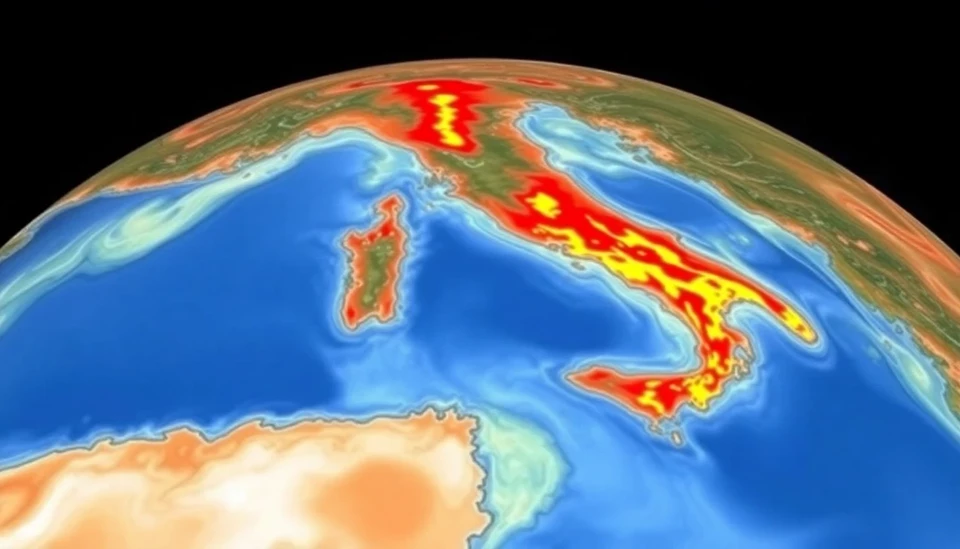
In a startling turn of climatic events, January 2025 has been marked as the hottest January on record globally, defying expectations of cooling associated with La Niña conditions. This unusual weather phenomenon has led climate scientists to express growing concerns about the implications for weather patterns and global temperature trends moving forward.
According to data released by the European Union's Copernicus Climate Change Service, the average global temperature for January was approximately 1.4 degrees Celsius above the pre-industrial levels. This significant increase comes in stark contrast to the traditionally cooler climate patterns anticipated during a La Niña phase, which typically brings about periods of below-average temperatures in various regions across the globe.
The surge in temperatures has been attributed to various contributing factors, including greenhouse gas emissions, natural climate variability, and the ongoing impacts of climate change. In regions like Europe and parts of North America, temperatures soared, marking an unsettling departure from typical January norms.
Notably, extreme weather events have also manifested throughout the month, with unusual warmth persisting across many areas, resulting in concerns over heatwaves and elevated fire risks. Weather experts are noting that this phenomenon may indicate a shift in climatic patterns, making traditional forecasts increasingly unreliable.
La Niña generally spurs cooler ocean temperatures in the central and eastern Pacific, which usually triggers colder weather patterns in many parts of the world. However, the past month has proven that climate dynamics can be complex and sometimes counterintuitive, leading to speculation regarding the interplay between natural cooling factors and anthropogenic influences.
As we proceed into 2025, meteorologists are closely monitoring these developments, urging policymakers and the public to take heed of the warning signs. The unprecedented heat recorded this January has raised alarms about the ongoing trajectory of global temperatures, emphasizing a need for urgent climate action as escalating temperatures could spark widespread ecological disruptions and severe weather conditions.
Experts warn that if such weather patterns persist, they could exacerbate the challenges faced in agriculture, health, and biodiversity, with vulnerable communities bearing the brunt of these impacts. Moreover, agricultural sectors are likely to suffer from inconsistent growing conditions, which could lead to food insecurity in the years ahead.
The implications of this record-breaking January extend beyond immediate weather concerns. They signal an urgent call for re-evaluation of climate strategies and emissions reduction efforts, in light of a world that appears increasingly susceptible to extremes in weather patterns. The scientific community is urging that this serves as a wake-up call for global leaders to pivot towards more robust climate policies to mitigate the effects of climate change.
As discussions surrounding climate resilience intensify, January's heat anomaly stands as a stark reminder of the intricate and often unpredictable nature of environmental systems. While La Niña typically brings a cooling effect, the palpable heat illustrates the complex interaction of atmospheric variables and their cascading effects on the global climate.
In conclusion, the record heat experienced in January shines a spotlight on the urgent need for renewed commitment and action against climate change, coupled with an understanding of the unpredictable behaviors that characterize our planet's climate systems in this era of global warming.
As this astonishing climatic event unfolds, communities, scientists, and policymakers will need to reassess their approach to addressing climate change, adapting strategies to a world that may no longer conform to historical climate patterns.
#ClimateChange #GlobalWarming #LaNina #ClimateCrisis #WeatherPatterns #Environment #HeatWave #Sustainability
Author: Peter Collins




